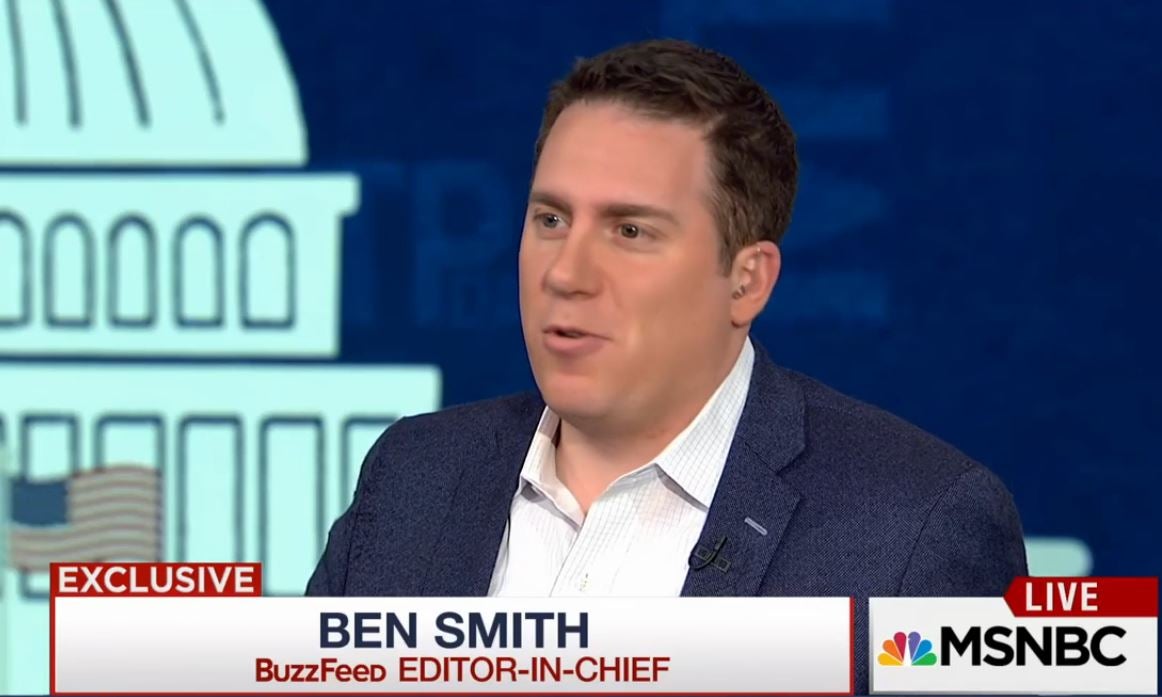
Buzzfeed’s editor-in-chief Ben Smith has defended the decision to publish the unverified ‘dirty dossier’ on Donald Trump saying: “We are now in a media environment where you have to engage in false statements.”
The US-based news website, which also has a substantial operation in the UK, published the 35-page research dossier on Trump on Tuesday after its existence was revealed in an earlier report by CNN.
Smith told MSNBC: “There was an era where we could act as gatekeepers where we could say crazy people are saying Barack Obama’s birth certificate is forged but we’re not going to write about that, it’s just crazy.
“That was first the approach, then you see these things spread and you have to engage with them.
“There was an era when you would say to your audience ‘we have lots of secrets we are not telling you but you should trust us’…That is not the present day.”
At least four UK news organisations also had knowledge of the intelligence dossier on Trump but decided not to run the story because they could not verify the claims made
Explaining why Buzzfeed took a different view, Smith said: “We had it for weeks and had reporters in Europe and the United States trying to knock down or stand up specific details.
“This was a document that was not just circulating at the highest levels of the intelligence community, the political elite..the media elite.
“When you have an object that is in play, that is having consequences for the way our elected leaders are acting you have to ask the question of why should I suppress that?
“Once it emerges, as it did last night in the public conversation, that there is this secret document full of dark allegations that we won’t reveal to you. Then, in this era, you really have to show to your readers what that is in an appropriate context.
“In our report it stressed that there are real solid reasons to distrust this, it noted that there are two specific errors.”
Asked whether he had just published fake news, he said: “This was a real story about a real document that was really being passed around between the very top officials of this country. The question you ask is: It’s ok for you to see this document, it’s ok for me, it’s OK for John McCain, it’s ok for the CIA – why is it not OK for your audience?
Asked why Buzzfeed decided to publish the document in full, rather than redact, Smith said: “To me to say there is a secret document here is our summary of it, we are going to protect your eyes from it, is very difficult to explain or maintain…Our impulse is to show the audience the underlying document, let them make their own decisions and respect them to doubt things.”
He added: “If there had not been a public conversation about secret documents that no-one was allowed to see we would have continued to try to report this out.
“We did a lot of reporting on the extent to which this was distributed at the highest levels.”
Smith said: “We are now in a media environment where you have to engage in false statements . You no longer have the luxury, where the legacy media has at times turned away from saying there is all of this crazy stuff on the internet we are just going to let it spread.
“This is a place where sunlight is a disinfectant, where it is important to show your audience what you have…
“I think in the long-term we all have to reckon with the reality that we’ve got to engage information that is out there, true and false, do our best to verify it and be as transparent as we can with our readers with what we know, what we don’t know and we doubt. This was absolutely.”
Email pged@pressgazette.co.uk to point out mistakes, provide story tips or send in a letter for publication on our "Letters Page" blog

